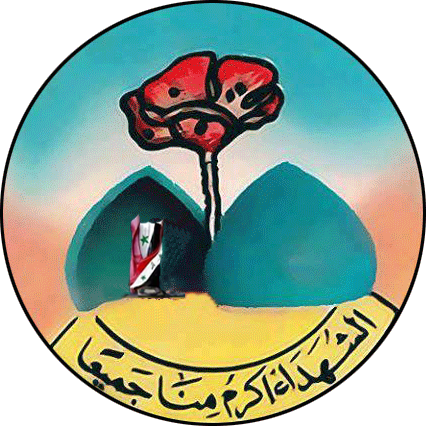



كتب الفيلسوف والعالم النظري السلوفيني سلافوي زيزيك في صحيفة الغارديان اللندنية في الأول من شباط/فبراير 2011 ما يلي :
رد الفعل الليبرالي الغربي الى الإنتفاضات في مصر وتونس كثيرا ما يظهر النفاق والسخرية
الذي لا يمكن لكن يلفت النظر في الثورات في تونس ومصر هو الغياب الواضح للأصولية الإسلامية. في أفضل تقليد ديمقراطي علماني، ثار الناس ببساطة ضد نظام مستبد، فساده وفاقته، وطلبوا حرية وأمل إقتصادي. الحكمة الساخرة للبراليين الغربيين -، طبقا لها، في البلدان العربية، يقتصر الشعور الديمقراطي الأصيل في نخبة ليبرالية ضيقة بينما الأغلبية العظمى يمكن فقط أن تعبئ من خلال الأصولية الدينية أو القومية، - أثبتت خاطئة. السؤال الكبير هو ماذا سيحدث بعد ذلك؟ من الذي سيظهر كفائز سياسي؟
عندما رشحت حكومة مؤقتة جديدة في تونس، استثنى منها الإسلاميون واليسار الأكثر راديكالية. رد فعل الليبراليين المتعجرفين كان: جيد، أساسا هم أنفسهم ولم يتغير شيء، طرفان شموليان - لكن هل الأمور بتلك البساطة؟ أليست الخصومة الحقيقة الطويلة المدى بالضبط هي بين الإسلاميين واليسار؟ حتى ولو أنهم اتحدوا بشكل مؤقت ضد النظام، بمجرد اقترابهم من النصر، تنشق وحدتهم، ينشغلون في معركة قاتلة، غالبا ما تكون أكثر قساوة من مواجهة العدو المشترك.
ألم نشهد بالضبط مثل هذه المعركة بعد الانتخابات الأخيرة في إيران؟ الذي ساندته مئات الآلاف من أنصار موسوي كان الحلم الشعبي الذي دعم ثورة خميني: الحرية والعدالة. حتى إذا كان هذا الحلم طوباوي، فإنه أدى الى انفجار مدهش من الإبداع السياسي والاجتماعي، تجارب تنظيمية ومناقشات بين الطلاب والناس العاديين. هذا الانفتاح الأصيل الذي أطلق عنان قوات لم يسمع عنها من قبل للتحول الاجتماعي، وهي ألحظة التي بدا كل شيء فيها ممكنا، ثم يعد ذلك خنقت بشكل تدريجي من خلال الاستيلاء على القيادة السياسية من قبل المؤسسة الإسلامية.
حتى في حالة الحركات الأصولية جدا، ينبغي للمرء أن يكون حذرا أن لا يتغيب عن المكون الاجتماعي. صور الطالبان بانتظام بصفتهم جماعة إسلامية أصولية تفرض حكمها بالإرهاب. مع ذلك، حينما سيطروا على وادي سوات في باكستان في ربيع 2009، ذكرت صحيفة نيويورك تايمز بأنهم هندسوا "تمرد طبقي الذي أستغل الانقسامات العميقة بين مجموعة صغيرة من الملاكين الأثرياء ومستأجريهم الذين لا يملكون أرضا". إذا، من خلال "الاستفادة" من محنة المزارعين، الطالبان يخلقون، على حد قول صحيفة نيويورك تايمز "ناقوس إنذار بالنسبة للمخاطر التي تواجه باكستان، التي لا تزال إقطاعية الى حد كبير"، ما الذي منع الليبراليين الديمقراطيين في باكستان والولايات المتحدة بالمثل "الاستفادة" من هذه المحنة ومحاولة مساعدة المزارعين المعدمين؟ هل أن القوات الإقطاعية في باكستان الحليف الطبيعي للديمقراطية الليبرالية؟
الاستنتاج الحتمي الذي يمكن استخلاصه هو أن صعود الإسلام الراديكالي كان دائما الجانب الآخر لاختفاء اليسار العلماني في البلدان الإسلامية. عندما صورت أفغانستان كالبلاد الإسلامية الأصولية القصوى، من الذي ما يزال يتذكر أنه قبل 40 عاما، كانت بلاد لها تقاليد علمانية قوية، بضمن ذلك حزب شيوعي قوي الذي استولى على السلطة هناك بشكل مستقل عن الإتحاد السوفيتي؟ أين تذهب هذه التقاليد العلمانية؟
ومن بالغ الأهمية قراءة الأحداث المستمرة في تونس ومصر (واليمن و... لربما، على أمل، حتى العربية السعودية) في ظل هذه الخلفية. إذا استقر الوضع في نهاية المطاف بحيث أن النظام القديم يبقى لكن مع بعض جراحة تجميلية ليبرالية، سيولد هذا رد فعل أصولي لا يمكن التغلب عليه. لكي يتمكن التراث الليبرالي الرئيسي البقاء على قيد الحياة، يحتاج الليبراليون إلى المساعدة الأخوية من اليسار الراديكالي. عودة الى مصر، رد الفعل المخزي والانتهازي بشكل خطير كان رد فعل توني بلير كما هو منشور على السي.ن.ن: التغيير ضروري، لكن يجب أن يكون تغيير مستقر. تغيير مستقر في مصر اليوم يعني فقط حلا وسطا مع قوات مبارك عن طريق توسيع ضئيل لدائرة الحكم. لهذا فإن التحدث عن انتقال سلمي الآن هو جنون: من خلال سحق المعارضة، مبارك بنفسه جعل ذلك مستحيلا. بعد أن أرسل مبارك الجيش ضد المحتجين، أصبح الاختيار واضحا: أما تغيير شكلي الذي فيه شيء ما يتغير لكي يبقى كل شيء آخر على حاله، أو انهيار حقيقي.
هنا، إذن، هي لحظة الحقيقة: لا يمكن المطالبة، كما في حالة الجزائر قبل عقد من الزمن، أن السماح بانتخابات حرة حقا يساوي تسليم السلطة الى المسلمين الأصوليين. القلق الليبرالي الآخر هو أن ليس هناك قوة سياسية منظمة تتولى السلطة إذا رحل مبارك. بالطبع ليس هناك، لأن مبارك اعتنى بذلك عن طريق الحد من المعارضة وتحويلها الى حلي هامشية، بحيث تكون النتيجة مثل عنوان رواية أجاثا كرستي المشهورة، ومن ثم لم يعد هناك شيء. الحجة الجدلية لمبارك - هي أما هو أو الفوضى - هي حجة ضده.
نفاق الليبراليين الغربيين مدهش: إنهم دعموا الديمقراطية علنا، والآن، عندما تمرد الشعب ضد الطغاة باسم الحرية العلمانية والعدالة، وليس باسم الدين، أنهم جميعا قلقون جدا. لماذا القلق، لما لا الفرح بتلك الحرية التي أعطيت فرصة؟ اليوم، أكثر من أي وقت مضى، شعار ماوتسي تونج القديم وثيق الصلة: "هناك فوضى كبيرة تحت السماء - الحالة ممتازة".
أين، ومن ثم ينبغي، يجب أن يذهب مبارك؟ هنا، الجواب واضح أيضا، إلى لاهاي. إذا كان هناك زعيم يستحق الجلوس هناك، فهو.
Why Fear the Arab Revolutionary Spirit?
The western liberal reaction to the uprisings in Egypt and Tunisia frequently shows hypocrisy and cynicism
By Slavoj Žižek
February 01, 2011 "The Guardian" -- What cannot but strike the eye in the revolts in Tunisia and Egypt is the conspicuous absence of Muslim fundamentalism. In the best secular democratic tradition, people simply revolted against an oppressive regime, its corruption and poverty, and demanded freedom and economic hope. The cynical wisdom of western liberals, according to which, in Arab countries, genuine democratic sense is limited to narrow liberal elites while the vast majority can only be mobilised through religious fundamentalism or nationalism, has been proven wrong. The big question is what will happen next? Who will emerge as the political winner?
When a new provisional government was nominated in Tunis, it excluded Islamists and the more radical left. The reaction of smug liberals was: good, they are the basically same; two totalitarian extremes – but are things as simple as that? Is the true long-term antagonism not precisely between Islamists and the left? Even if they are momentarily united against the regime, once they approach victory, their unity splits, they engage in a deadly fight, often more cruel than against the shared enemy.
Did we not witness precisely such a fight after the last elections in Iran? What the hundreds of thousands of Mousavi supporters stood for was the popular dream that sustained the Khomeini revolution: freedom and justice. Even if this dream utopian, it did lead to a breathtaking explosion of political and social creativity, organisational experiments and debates among students and ordinary people. This genuine opening that unleashed unheard-of forces for social transformation, a moment in which everything seemed possible, was then gradually stifled through the takeover of political control by the Islamist establishment.
Even in the case of clearly fundamentalist movements, one should be careful not to miss the social component. The Taliban is regularly presented as a fundamentalist Islamist group enforcing its rule with terror. However, when, in the spring of 2009, they took over the Swat valley in Pakistan, The New York Times reported that they engineered "a class revolt that exploits profound fissures between a small group of wealthy landlords and their landless tenants". If, by "taking advantage" of the farmers' plight, the Taliban are creating, in the words of the New York Times "alarm about the risks to Pakistan, which remains largely feudal," what prevented liberal democrats in Pakistan and the US similarly "taking advantage" of this plight and trying to help the landless farmers? Is it that the feudal forces in Pakistan are the natural ally of liberal democracy?
The inevitable conclusion to be drawn is that the rise of radical Islamism was always the other side of the disappearance of the secular left in Muslim countries. When Afghanistan is portrayed as the utmost Islamic fundamentalist country, who still remembers that, 40 years ago, it was a country with a strong secular tradition, including a powerful communist party that took power there independently of the Soviet Union? Where did this secular tradition go?
And it is crucial to read the ongoing events in Tunisia and Egypt (and Yemen and … maybe, hopefully, even Saudi Arabia) against this background. If the situation is eventually stabilised so that the old regime survives but with some liberal cosmetic surgery, this will generate an insurmountable fundamentalist backlash. In order for the key liberal legacy to survive, liberals need the fraternal help of the radical left. Back to Egypt, the most shameful and dangerously opportunistic reaction was that of Tony Blair as reported on CNN: change is necessary, but it should be a stable change. Stable change in Egypt today can mean only a compromise with the Mubarak forces by way of slightly enlarging the ruling circle. This is why to talk about peaceful transition now is an obscenity: by squashing the opposition, Mubarak himself made this impossible. After Mubarak sent the army against the protesters, the choice became clear: either a cosmetic change in which something changes so that everything stays the same, or a true break.
Here, then, is the moment of truth: one cannot claim, as in the case of Algeria a decade ago, that allowing truly free elections equals delivering power to Muslim fundamentalists. Another liberal worry is that there is no organised political power to take over if Mubarak goes. Of course there is not; Mubarak took care of that by reducing all opposition to marginal ornaments, so that the result is like the title of the famous Agatha Christie novel, And Then There Were None. The argument for Mubarak – it's either him or chaos – is an argument against him.
The hypocrisy of western liberals is breathtaking: they publicly supported democracy, and now, when the people revolt against the tyrants on behalf of secular freedom and justice, not on behalf of religion, they are all deeply concerned. Why concern, why not joy that freedom is given a chance? Today, more than ever, Mao Zedong's old motto is pertinent: "There is great chaos under heaven – the situation is excellent."
Where, then, should Mubarak go? Here, the answer is also clear: to the Hague. If there is a leader who deserves to sit there, it is him.
© Guardian News and Media Limited 2011
http://www.guardian.co.uk/commentisfree/2011/feb/01/egypt-tunisia-revolt